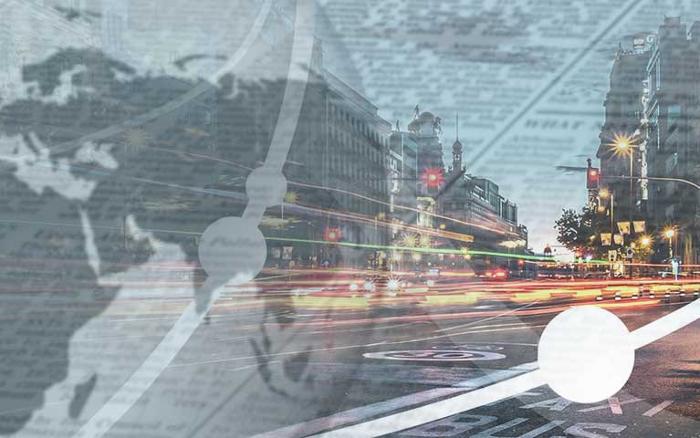

The bicycle delivery boom: challenges and opportunities for a flourishing sector

The use of bicycles for proximity delivery is transforming the logistics landscape in Europe, affording sustainable solutions that cut emissions and improve urban efficiency.
Bicycle delivery offers a range of environmental, climate and social benefits aligned with the European Union's sustainability goals. According to the European Cyclists' Federation, every kilometre cycled rather than driven in a motor vehicle avoids the emission of around 150 grammes of CO2.
Not only does this mode of transport cut emissions, it also reduces noise pollution, improves air quality and reduces traffic jams and accidents. Physical activity also has a positive impact on the health of delivery drivers and reduces the occurrence of road accidents.
From a social perspective, cycling contributes to a more humane, accessible urban environment, fostering community interactions and improving social cohesion.
Favourable policies in Europe
The Netherlands and Denmark are the leaders in the implementation of bicycle-friendly delivery policies. In the Netherlands, the government has a continuous investment drive in cycling infrastructure, making it easier for companies like DHL and UPS to use cargo bikes in cities such as Amsterdam and Utrecht. These initiatives have proven to be effective at improving logistics efficiency and cutting emissions.
Denmark, in turn, has developed the Cykelsuperstier network in Copenhagen, allowing speedy, safe journeys for cargo bikes. Companies like PostNord have integrated bicycles into their daily operations, optimising last mile delivery and reducing urban congestion.
Germany has also made significant progress, with initiatives such as the "Berlin Logistics Hub", which allows goods to be transferred from trucks to cargo bikes for final delivery in the city. This strategy not only cuts down on congestion and emissions, but it also improves the efficiency of urban deliveries.
In Spain, although the use of bicycles for goods delivery is growing, it still faces challenges. Cities such as Barcelona and Madrid are starting to implement favourable infrastructure and policies. Delivery companies are deploying cargo bikes, helping to reduce the carbon footprint and traffic congestion.
Economic opportunities
The bicycle delivery market is expanding, affording a significant economic opportunity. According to a report by the European Sustainable Logistics Association, the sector is expected to reach a value of €1.5 billion by 2025, driven by the demand for faster and more sustainable delivery solutions, especially in e-commerce.
International delivery companies have led the way in adopting cargo bikes in their operations, demonstrating the economic and environmental benefits of this mode. DHL, for example, has implemented cargo bikes in more than 80 European cities, significantly cutting emissions and operating costs. What's more, local companies such as Rytle in Germany are developing innovative electric cargo bike solutions which are being adopted by various logistics companies.
Road safety must be a priority
Road safety is a primary concern for the integration of cargo bikes into the urban environment. It is essential to ensure the safety both of delivery drivers as well as of pedestrians and other vehicles. Infrastructure policies, such as dedicated cycle lanes and safe loading zones, along with training programmes for cyclists and public awareness campaigns, are key to reducing accident risks and improving safety on the streets. Implementing these measures not only protects delivery drivers, but it also promotes the harmonious coexistence of all road users.
The use of bicycles for goods delivery is booming in Europe, affording multiple environmental, economic and social benefits. Although Spain still has challenges to deal with compared to other European countries, current trends and public support would suggest that things look promising.
Global Mobility Call is holding a new edition from 19 to 21 November at IFEMA MADRID and it will be a key platform to discuss these developments and seek innovative solutions such as the boom in bicycles for goods delivery, with a view to promoting greener and more efficient mobility.





